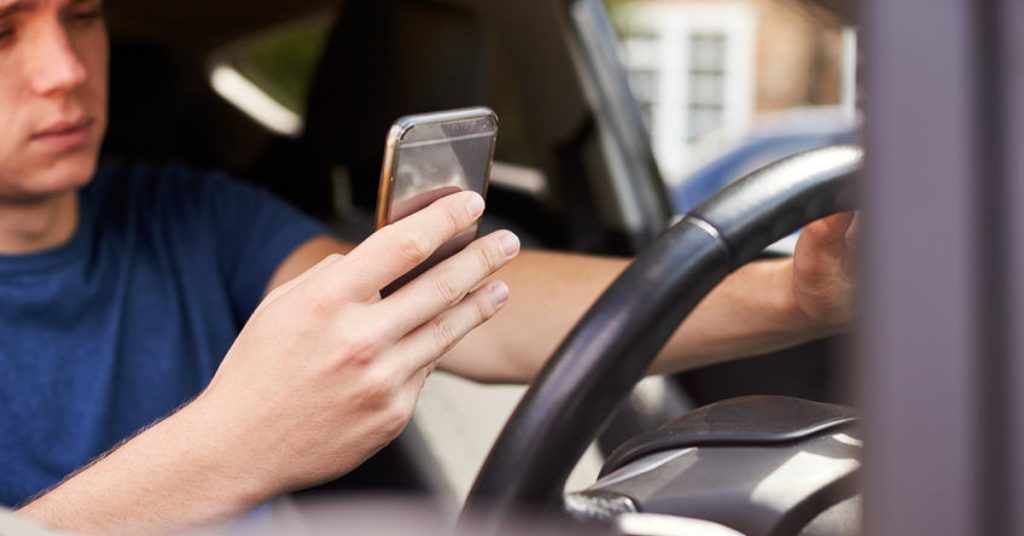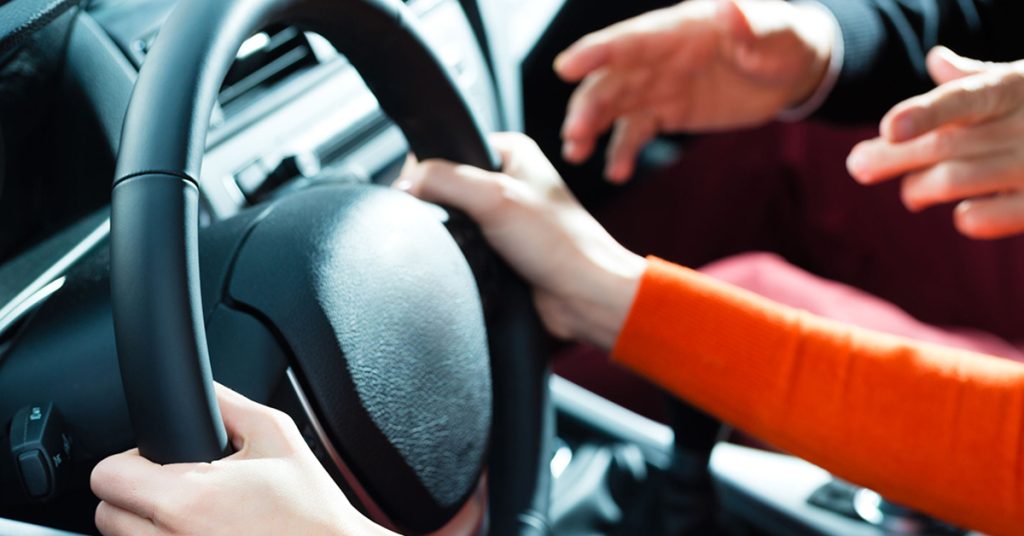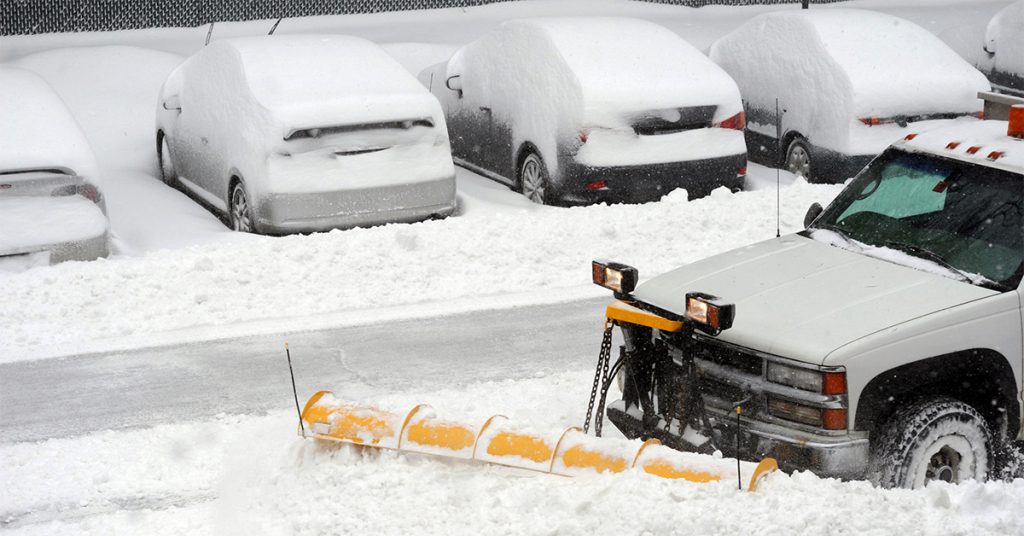Posts Tagged ‘car accident attorneys’
For Teen Drivers, Fewer Passengers is Safer

For safety, teens are not allowed to drive with their friends for the first six months of holding a driver’s license in Massachusetts.
Teen Driver Safety Week is Oct. 18-24, 2020. Breakstone, White & Gluck is sharing articles to encourage parents and teens to collaborate and discuss safe driving decisions.
In Massachusetts, drivers who are at least 16 ½ are eligible to receive their driver’s license after a six-month permit period. Because Massachusetts has a Junior Operator Law, teens do not immediately assume full driving privileges. There are restrictions to help reduce the risk of teen car accidents, including one on passengers.
For the first six months, Massachusetts junior operators are not allowed to travel with friends and others under age 18, unless accompanied by another driver who is at least 21 years old and meets other requirements mentioned in statute below. There is an exemption for siblings and family members. The passenger restriction is a critical part of the law, giving teens more time to learn road skills without the distraction of friends.
M.G.L. c.90 § 8 states, “No person holding a junior operator’s license shall operate a motor vehicle during the first 6 months of licensure while a person under 18 years of age, other than the operator or an immediate family member of the operator, is present in the vehicle unless also accompanied by another person, duly licensed by his state of residence, who is at least 21 years of age with at least 1 year of driving experience and who is occupying a seat beside the driver.”
The passenger restriction should be taken seriously. As we discuss below, the distractions of carrying other teens combined with driver inexperience, can contribute to the risk for car accidents resulting in catastrophic injuries such as brain injuries and paralysis, and death. Car crashes are the leading cause of death among teens, according to the Centers for Disease Control and Prevention (CDC). The junior operator law attempts to give teens more time for practice.
If stopped for carrying unlawful passengers, teens can lose their license for 60 days for the first offense. For the second offense, drivers face a 180-day license suspension and must attend driver attitudinal retraining. There is a one-year license suspension and driver attitudinal retraining for subsequent offenses.
More Passengers, More Risk for Crashes
Research has shown teens need the extra time driving without their friends.
Compared to no passengers, a 16- or 17-year-old’s risk for death per mile increases 44 percent when they carry just one passenger under the age of 21, according to the AAA Foundation for Road Safety. The risk doubles when a teen driver carries two passengers younger than 21. The death rate quadruples when there are three or more passengers.
The older the passenger, the less risk for a car accident. There is a 62 percent decrease for a crash when a passenger age 35 or older is aboard. Take this statistic as motivation to give your teens the keys as you ride along. If you develop a good routine with them, you can help them build a full range of driving skills.
As they become more skilled, reward them by letting them drive to new places – a special lunch spot or a scenic view. This helps them build skills, learn responsibility and find some enjoyment from driving. With more time, they can practice fundamentals, such as how to turn through that intersection near your home, how to check for cyclists and how to stop for pedestrians at crosswalks. When teens drive with their friends, they are less likely to give these things their full attention.
Come Up With a Driving Plan for Your Teen
The takeaway is come up with a plan for your family. If your teen just earned their Massachusetts junior operator license, the state says they are not allowed to drive with friends under 18 for the first few months but that they can drive with their siblings right away. Remember, the law is a guide. This is your choice to make based on what your teen and their siblings are ready for. Your goal is to help your teen steer clear of car accidents. Think about each situation before you say yes.
When your teen is allowed to start driving passengers under 18, take another pause. The data still shows fewer passengers is safer.
You may want to start slow. Allow your teen to drive with just one friend. Choose a friend who is responsible, trustworthy and has a parent whom you know well and shares your views on raising safe and responsible teen drivers. That parent should also share your views on open communication. If something should happen and your teen should find themselves at risk, you want your teen and their friend to both feel they can call for a ride.
Free Legal Consultation – Boston Car Accident Lawyers
Breakstone, White & Gluck has decades of experience representing by negligent driving in Boston, Cambridge, Quincy and across Massachusetts. Through our Project KidSafe campaign, we work to protect children and families. Each year, we write about National Teen Driver Safety Week to encourage parents and teens to talk about safety on the roads.
If you have been injured and want to consult a Boston car accident lawyer, you can visit our website or contact our attorneys at 800-379-1244 or 617-723-7676 for a free legal consultation. You can also use our contact form.
Distracted Driving Laws Are Saving Teen Lives, Research Says

Distracted driving laws are reducing teen driver crashes, study says.
When drivers use cell phones, they introduce grave dangers to the road and are more likely to crash. This is why many states have now passed distracted driving laws. But how effective have these laws been?
Highly effective, suggests new research. Distracted driving laws are saving the lives of both teen drivers and their passengers in car crashes. The greatest impact is seen when states ban all drivers from cell phone use, not just junior operators under age 18.
Researchers at Massachusetts General Hospital published the findings from a 10-year study in Pediatrics journal. Reviewing more than 38,000 motor vehicle crashes reported between 2007 and 2017, researchers found a significant decrease in fatal motor vehicle crashes among drivers age 16-19.
There was actually a 43 percent reduction in deaths among 16-year-old drivers in states which passed hand held cell phone bans for all drivers (not just a ban for junior operators under 18).
Researchers had the challenge of working with evolving cell phone laws. When the study began in 2007, just 15 states had passed one type of distracted driving law, often a texting while driving ban. By the end, researchers were reviewing the impact of multiple bans, including texting while driving bans (both primary and secondary), hand-held bans and bans on all types of cell phone use for drivers under age 18.
Distracted Driving In Massachusetts
Massachusetts distracted driving crashes are a serious concern, having caused the deaths of drivers as well as pedestrians and cyclists. Once drivers pick up a cell phone, it is hard to break their attention away. The younger the driver, the harder it can be and this makes it essential for teens to establish good habits from the start.
In Massachusetts, a high school student was the first to be criminally prosecuted for motor vehicle homicide, texting while driving and negligent operation of a motor vehicle, according to CNN. Police allege the 17-year-old Haverhill man exchanged nearly 200 text messages in the hours leading up to the fatal crash in 2011. The crash killed a 55-year-old New Hampshire driver and seriously injured his girlfriend, who was riding in his passenger seat. As the prosecutor said at sentencing, “there are no winners today.” He went onto say, “…in a split second, many lives are forever changed.”
The state of Massachusetts reported a 170 percent increase in distracted driving crashes between 2014 and 2016. Over the past few years, lawmakers and safety advocates negotiated proposals to pass a hands-free law or a ban on handheld cell phone use. This finally reached resolution in November 2019, taking effect in April.
Under the Massachusetts Hands-Free Law, drivers are no longer allowed to use hand-held cell phones. They must now use voice-activated technology. The goal is to reduce injuries by taking away the act of reaching for a phone and attempting to dial. However drivers must still use voice-activated cell phones cautiously. Drivers can still cause accidents when using voice-activated technology and can still be held liable if they cause someone’s injuries.
Teen drivers – Massachusetts junior operators under age 18 – are still not allowed to use hands-free cell phones under the new law.
Free Legal Consultation – Boston Car Accident Attorneys
At Breakstone, White & Gluck, our attorneys fight for the rights of those injured by negligent driving in Boston and across Massachusetts. With more than 100 years combined experience, we have a reputation for strong results for victims of car accidents, truck crashes and bus collisions.
If you have been injured, call our attorneys for a free legal consultation: 800-379-1244 or 617-723-7676 or use our contact form.
Study: Teen Driving Accidents Claim More Than 7 Lives Each Day of Summer
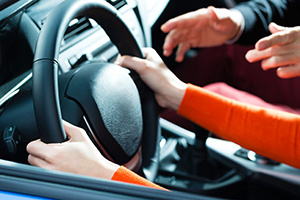 We know many Massachusetts parents regularly talk to their teens about safe driving to prevent car accidents. You should be commended for engaging in this often-stressful conversation.
We know many Massachusetts parents regularly talk to their teens about safe driving to prevent car accidents. You should be commended for engaging in this often-stressful conversation.
We urge you to continue on this summer. Helping teens understand the difference between appropriate and unsafe choices and build strong driving skills is a life-long investment in their safety and the safety of others.
Nationwide, teen driving crashes killed more than seven people each day of summer from 2008 to 2018, according to AAA Foundation for Traffic Safety. AAA recently released the 2020 “100 Deadliest Days” of driving report, once again warning teen drivers and parent to take extra precautions between Memorial Day and Labor Day.
Be aware of the unique risks this summer, AAA says. In response to the COVID-19 pandemic, many summer jobs and activities have been cancelled. With more free time, teens may be driving more. AAA urges parents to read its 2020 “100 Deadliest Days” report, and its Parent Coaching Guide, and to have teens sign a safe driving agreement. With this approach, parents can set clear expectations for teens and refer them to the agreement should they forget. If teens violate the terms of the agreement, they may lose driving privileges for a period of time.
Research on Teen Driving Crashes
Here are a few figures for parents to consider. AAA’s research found more than 70 percent of teen drivers age 16-18 had engaged in unsafe and illegal driving behaviors.
Seat belt Use
17 percent of teen drivers admitted to not wearing a seat belt.
Speeding
47 percent of teen drivers admitted to driving 10 mph over the speed limit on a residential street.
40 percent of teen drivers admitted to driving 15 mph on a freeway.
Texting and Cell Phone Use
35 percent of teen drivers admitted to texting while driving.
Other Driving Violations
More than 30 percent of teen drivers admitted to running red lights and aggressive driving. Meanwhile, 25 percent of teen drivers admitted to drowsy driving.
Parents can influence teens on some of these behaviors by developing a teen driving agreement (there are several available on the Teen Driver Source website). Your conversations with your teens are also essential.
Help Your Teen Drive Safely
Help your teen drive safely and avoid a car crash.
Many states have graduated licensing laws, including Massachusetts. Encourage your teen to follow the Massachusetts Junior Operator Law at all times. Under this law, teens are not allowed to use cell phones when driving in Massachusetts, not even under the new Massachusetts “hands-free” driving laws.
When they have a question, encourage them to ask, review their driver’s education materials or the Massachusetts Driver’s Manual. When drivers understand the law, they are more confident making decisions on the road.
Another opportunity is to drive together. Take turns in the driver seat. When you drive, take the opportunity to show your teen how you follow the speed limit. On a 30 mph street, this means driving 30 mph or less, not 35 or 40 mph. Tell your teen what you are doing and why.
Speed-related crashes are prevalent among teens. Simply slowing down and following other vehicles at greater distances can make a tremendous impact in reducing car accidents. At slower speeds, your teen has more time to stop and if they have a collision, injuries are likely to be less severe. Accident victims are more likely to survive a teen driving accident.
At the same time, parents should understand that when teens speed, they may be intentionally speeding and risk-taking. This is unacceptable. But often, the reason is driver inexperience. Teens need more practice using the gas and brakes, and you may need to explain that traveling “just” 5 mph or 10 mph over the speed limit is dangerous. In fact, you may need to do this a few times, also explaining that teens are more likely to cause injury when they speed and receive a speeding ticket which will impact their junior license.
To help your teen, be patient. Your goal is to demonstrate safe driving techniques and give them feedback when they make a good decision or make a mistake. Yet, if you are too critical, you will make your teen nervous and reluctant to drive with you. Tread lightly but firmly. It’s alright to take a break, but don’t stop trying.
Free Legal Consultation – Boston Car Accident Lawyers
At Breakstone, White & Gluck, our Boston car accident attorneys represent those who have been injured by negligent driving in Massachusetts. Car accidents often result in serious and catastrophic injuries, including head injuries, spinal cord injuries, broken bones, lacerations and death. When victims survive, they may require medical care, have to take time off from work and suffer other financial losses.
Always learn your legal rights after an injury. For a free legal consultation, call our car accident attorneys at 800-379-1244 or 617-723-7676. You can also use our contact form.
Massachusetts Considers Red Light Cameras to Catch Traffic Offenders

Massachusetts lawmakers are considering legislation to allow communities to install red light cameras.
In Massachusetts, drivers are getting a strong warning to slow down this week as the state Senate debates red light cameras.
The state Senate is scheduled to debate legislation proposed by Sen. William Brownsberger and redrafted by the Ways and Means Committee.
The proposed bill would grant Massachusetts cities and towns new authority to install automated camera systems to capture vehicles that violate traffic laws at intersections, according to The Boston Globe. The goal is safer roads; the AAA Foundation for Traffic Safety has reported red light cameras have contributed to a 14 percent reduction in traffic deaths at intersections.
Drivers who violate traffic laws could end up receiving a citation and fine, without ever being stopped by a police officer. The fine would be $25 and tied to the vehicle registration. The person listed on the vehicle registration will receive the traffic citation, not necessarily the person driving at the time. Violations would not count toward Massachusetts auto insurance surcharges.
This is an important proposal and drivers, cyclists and pedestrians want to watch this week. Many, many traffic crashes happen in intersections, when drivers speed through lights, veer out of their lanes or neglect to give cyclists and pedestrians enough space. At the same time, there are many concerns about privacy and how broad laws should reach.
Beyond Massachusetts, 20 states have passed laws allowing red light cameras, according to the Governors Highway Safety Association. These states stand divided on authority; 11 states fully permit use while 9 states only allow use in specific situations.
Massachusetts Red Light Camera Legislation
Under the Massachusetts proposal, communities could install one traffic camera for every 2,500 residents. Signs must be posted and visible warning drivers approaching the intersection.
To address privacy concerns, communities would be directed to capture photos without identifying the driver or passengers in the vehicle, or any of their belongings. Photographs would be destroyed within 48 hours.
Drivers can be cited for failure to stop for a red light, making an illegal turn at a red light or speeding. Drivers may be cited for traveling at least 5 miles per hour over the speed limit. There will be an appeals process for drivers.
The law should not impact green light or yellow light laws. Lawmakers wrote in language that says a vehicle can be across the line during a yellow light, according to the Globe report.
Communities will be compensated for the costs of installation and operating the camera system. The state’s Transportation Trust Fund will receive the rest of the revenue from citations.
History of Opposition for Red Light Cameras in Massachusetts
Massachusetts has long opposed the idea of red light cameras due to privacy concerns. More than a decade ago, individual communities attempted to lobby state legislators for the right to install traffic cameras, without success.
But now, growing traffic safety concerns has rekindled proposals in Massachusetts and across the country.
- Last year, the AAA Foundation for Traffic Safety reported red light running crashes have reached a 10-year high in the U.S.
- Fatal red light car crashes have increased 28 percent since 2017.
- About 35 percent of the victims were the drivers who thought they could race through the red light.
AAA Recommendations for Red Light Camera Use
AAA recommends communities install traffic cameras at intersections with demonstrated patterns of red light violations or crashes. Before launching red light cameras, communities should have established overall traffic safety and engineering plans, AAA says. Law enforcement should directly supervise red light cameras and drivers should be given fair notice with traffic signs and other outreach.
Breakstone, White & Gluck – Free Legal Consultation
Breakstone, White & Gluck provides aggressive and experienced representation to those injured or killed by the negligence of others. Our attorneys have been consistently recognized for their results for our clients, including as Top 100 New England Super Lawyers, Top 100 Massachusetts Super Lawyers and by Best Law Firms as a Tier 1 Firm in Personal Injury and Medical Malpractice in the Boston Metropolitan region.
If you have been injured, learn your legal rights. Contact our car accident lawyers today at 800-379-1244 or 617-723-7676. You can also use our contact form.
National Teen Driver Safety Week is October 20-26, 2019
 National Teen Driver Safety Week will begin Sunday. While your teen may learn about this topic at school, parents can also become involved and learn alongside teens. Parents influence their children in many ways. If you can influence the discussion on safe driving, you could save a life.
National Teen Driver Safety Week will begin Sunday. While your teen may learn about this topic at school, parents can also become involved and learn alongside teens. Parents influence their children in many ways. If you can influence the discussion on safe driving, you could save a life.
It’s a well-known and tragic fact: motor vehicle crashes are the leading cause of death for teens. In 2017 alone, 2,526 teens were killed in crashes, according to the to the National Highway Traffic Safety Administration (NHTSA).
This is the 12th year that National Teen Driver Safety Week has been observed. Two Pennsylvania lawmakers, Congressman Charlie Dent (R-PA) and Senator Bob Casey (D-PA), introduced the legislation establishing the annual event in October 2007.
National Teen Driver Safety Week highlights many topics, including graduated licensing laws, distracted driving, speeding and obeying fundamental traffic laws. It also provides resources on helping teens through their first few weeks as a licensed driver, along with handling stressful and emotional driving situations, including car accidents. Visit teendriversource.org to learn more.
State Graduated Driver Licensing (GDL) Laws
We are going to write about graduating licensing laws because these are the foundation for teaching teens to drive safely. All 50 states have a law in place, but these vary in restrictions, according to the Insurance Institute for Highway Safety (IIHS). Florida was the first state to adopt a graduated licensing law for teens in 1996. Massachusetts lawmakers approved a Junior Operator Law in 2007, which increased driving training requirements and penalties.
The law places restrictions on teens with licenses between the ages of 16 ½ and 18. First, as you may know if you are a parent, teens have to obtain a learner’s permit. Next comes 30 hours of classroom training on Massachusetts motor vehicle laws and safe driving techniques. Beyond the classroom, there is another 18 hours of instruction, including 12 hours behind-the-wheel and 6 hours of observation.
Here are some of the restrictions under the Massachusetts Junior Operator Law:
Passenger Restriction. Teens are not allowed to drive with other passengers under age 18 until they have been licensed for 6 months. There is an exception for siblings.
Night Driving Restriction. Another restriction is teens cannot drive between the hours of 12:30 a.m. and 5 a.m.
Cell Phone Use Restriction. Teen drivers cannot use cell phones or mobile electronic devices. Texting while driving is also prohibited, for all other drivers in Massachusetts.
Teens can expect to receive a significant license suspension if they violate these restrictions. For instance, there is a 60-day license suspension if your teen is caught driving between 12:30 and 5 a.m. There is a 90-day suspension for a first offense of speeding. For the second offense, there is a full-year suspension.
Massachusetts’ Junior Operator Law violations
Visit teendriversource.org for more on National Teen Driver Safety Week.
Fewer Teen Drivers
In recent years, Massachusetts has actually reported a reduction in teen deaths and non-fatal injuries in drivers age 16 and 17. This is a positive development, except when you look closer. There has actually been an increase in hospital rates for crash injuries in drivers between 18 and 20 years old. The state and a Boston Globe analysis attribute this to the fact that many teens are now waiting to get their license until age 18. By doing so, teens can skip driver’s education, which became more expensive and time-consuming when the Junior Operator Law took effect.
If your teen delayed getting their license, make sure they take time to learn the fundamentals and get the practice they need. Driver’s education is a critical component to developing a safe driver.
About Breakstone, White & Gluck – Experienced Boston Car Accident Lawyers
The Boston personal injury lawyers at Breakstone, White & Gluck specialize in representing those injured in motor vehicle crashes in Massachusetts. With over 100 years combined experience, our car accident lawyers have the expertise to guide our clients to the best financial results in case involving motor vehicle accidents and truck crashes.
For a free legal consultation, contact us at 800-379-1244 or 617-723-7676. You can also use our contact form.
Snow Plow Accidents Claim Lives in Massachusetts and Illinois
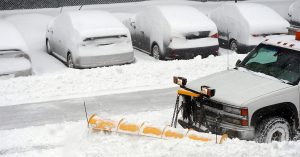
A snow plow crash killed an Easton man this week. Police are currently investigating.
As we battled snow and cold, there were two fatal snow plow accidents this week, including one death here in Massachusetts. In Easton, a snow plow hit and killed a 64-year-old man who was changing a tire on Route 138. Meanwhile, in Illinois, another man was snow blowing his driveway when a plow truck backed into him. Both men were pronounced dead on the scene.
These were not the only snow plow accidents, either. In Johnson County, Kansas, a snowplow driver veered off the road and died in a single-car crash. In New York, a state DOT snow plow and vehicle collided in the Town of Aurelius in Cayuga County. Traffic was stopped as two people were airlifted for medical treatment.
Easton Snow Plow Accident
NBC Boston reports the 64-year-old Easton man was hit about 1 p.m. Wednesday on Washington Street, which is Route 138. The victim parked his van on the street, along the breakdown lane on the northbound lane, when the passenger truck plow approached. The victim was fixing the rear tire on the driver’s side when he was hit. According to the Brockton Enterprise, police arrived to find broken vehicle parts, a pair of sneakers and other debris littering the street. The car jack, tire and van were left behind.
Neighbors witnessed the horrific crash and told NBC Boston that the victim had been kneeling down when he was hit by the plow’s blade, then dragged. One homeowner has turned over home surveillance video to help police with the investigation, according to the news station.
Police are still investigating whether the plow driver will face criminal charges. The police chief told NBC Boston that one focus of the investigation will be where the victim was at the time of the crash, whether he was in the roadway or off the roadway.
Police have not released the driver’s name, but said he remained on the scene and cooperated with the investigation.
Illinois Snow Plow Accident Kills Man
In the Chicago suburbs, there was another sad story in the Village of Libertyville. A 75-year-old man was killed Monday morning while clearing snow and ice from his driveway. According to news reports, the victim may have been snow blowing his driveway when a snow plow driver backed into him. The crash happened in a cul de sac in the 600 block of Bridle Court in the Village of Libertyville.
The man was pronounced dead on the scene and the plow driver was placed on paid administrative leave pending an investigation by the Lake County Major Crash Assistance Team began investigation.
Snow Plow Truck Accidents in Massachusetts
Snow plow truck accidents happen every year in Massachusetts and they are often fatal. Snow plow crashes can seriously injure drivers and passengers. But many snow plow crashes injure pedestrians.
Snow plow drivers in Massachusetts have a responsibility to obey all traffic laws and exercise caution, always watching for pedestrians and other vehicles.
They must meet certain requirements to clear snow. First, snow plow drivers must apply for a commercial driver’s license (CDL). Second, they must buy commercial auto insurance, along with plow equipment. Finally, the Registry of Motor Vehicles issues special snow removal plates which they must use. Yet, beyond this, there is little oversight, including no restriction on how many hours they are allowed to work.
Plow drivers can work for private companies and contract with cities, towns, the state or private businesses; they can be owned and operated by cities and towns or they can be owned and operated by the Massachusetts Department of Transportation.
Over the years, Massachusetts has seen numerous snow plow accidents lead to serious injuries and death. Causes of snow plow accidents can include drowsy driving, checking a cell phone and inexperience with the heavy machinery.
Snow plow drivers have faced criminal charges and civil lawsuits in Massachusetts. In 2016, a plow driver was charged with manslaughter in the death of a 60-year-old man he struck in Medford. A year earlier, the victim left Bread & Circus Bakery – a Whole Foods Market company – and walked across the store’s parking lot. Police allege the plow driver had been smoking marijuana prior to backing up and running over the worker.
Another tragedy came in February 2015, when a 21-year-old Fitchburg woman was killed in a snow plow accident as she walked home from a local Market Basket, where she worked. Her family filed a wrongful death lawsuit against the snow plow driver and his company, Einstein’s Inc., along with his insurance carrier, Plymouth Rock Assurance Corp.
According to the Sentinel & Enterprise of Fitchburg, the lawsuit alleged the driver had operated negligently, recklessly and carelessly and created a safety risk on public roads and highways and that the company had breached its duty to public to ensure the driver was operating safely.
If you or a loved one have been injured by the negligence of a snow plow driver in Massachusetts, our Boston personal injury lawyers can help you learn your rights for seeking compensation.
For a Free Legal Consultation, Call Breakstone, White & Gluck of Boston at 800-379-1244 or 617-723-7676.



